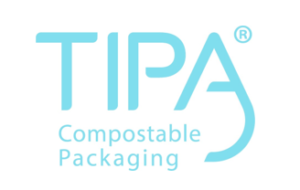I established TIPA in 2010 alongside Tal Neuman. Ahead of the curve, I recognised the urgent need to revolutionise packaging systems and reduce plastic pollution around the world.
TIPA’s vision for flexible packaging is to have the same end-of-life as an orange peel while maintaining the qualities of conventional plastics that we have come to expect, including durability, transparency and sealability. Several polymer blends have been developed by us, certified as compostable, meeting the requirements for multiple packaging applications.
We now offer packaging solutions for the food and fashion industries.
TIPA is now a globally recognised leader in the fight against plastic waste, whilst working with Governments to achieve the legislation and infrastructure to support alternative packaging solutions, lacking in many places around the world.
TIPA headquarters are in Israel, with operations in Europe, Australia, and the U.S.

What do you think makes TIPA unique?
TIPA’s unique products are made to order customised packaging applications. Our products are fully certified for home and/or industrial composting; they break down in compost environments into water, CO2, and biomass, within 180 days. This enables companies in the food and fashion industry a viable, eco-friendly packaging solution.
Conventional flexible plastic packaging remains a rapidly growing sector due to its inexpensive and lightweight properties, but it lacks a circular solution because it is either made by blending several materials, contaminated by food, or is too lightweight for separation and recycling. TIPA developed a packaging that mimics these valuable qualities but is made with materials that return safely to the biosphere.
More from Interviews
- Interactive Fun and Entertainment: Interview With 501 Fun
- Meet Jaron Soh, Co-founder & CEO of LGBTQIA+ Mental Wellness App: Voda
- Meet Nathalie Morrison: The Founder Behind Astrea, the Fashion-Tech Brand Putting Lab-Grown Diamonds at the Heart of Luxury
- Meet Badr Ward, CEO And Founder Of Education Platform: Lamsa
- A Conversation with Andrej Persolja, Founder of We Fix Boring
- A Chat with Kebbie Sebastian, CEO and Founder of Merge
- Meet Dr Agnès Leroy, GPU Director at Cryptography Tool: Zama
- Meet Roman Eloshvili, Founder of ComplyControl
How has TIPA evolved over the last couple of years?
Over the last ten years TIPA has evolved in so many ways through developing new materials and growing our knowledge of the issues at hand.
Since our inception, TIPA has developed a vast portfolio of products based on innovative technology. Our initial target at the beginning was finding a replacement for plastic water bottles, but after learning flexible plastic packaging used in food and fashion has no ecological solution whatsoever, we’ve turned in that direction.
Most biodegradable packaging today is made from polymers that are relatively weak and tend to break easily, thus are not suitable for food. We have created a product with a particular formulation – we take a compostable material and bring new properties to it.
Our goal is to make the experience of choosing TIPA products seamless; the R&D team meets with the client and considers the product they need and its features, while making sure it is also compostable, in keeping with all regulations. Every sale requires this process, and it’s especially important with food clients since different types of food need different packaging; dry food, fresh produce, salty snacks – we have a solution for each of these.
Over the years, I’ve observed that more and more people have become aware of the dangers of plastic pollution, which puts pressure on decision makers and big businesses to take action. The rise in businesses looking for sustainable packaging solutions has led to further developments in our offering. These include a recent compostable packaging innovation, 312MET, that meets the needs of oily and salty snacks.
Also, we have established a new Compostable Coalition, a multi-stakeholder initiative aimed at ensuring compostable packaging is effectively collected and organically recycled via existing UK bio-waste infrastructure.
What can we hope to see from TIPA in the future?
As people are beginning to realise, the future is in our hands, we need to capitalise and act now. I want to leave a legacy of compostable packaging solutions that can rid us of needless plastic packaging that are damaging our beautiful planet. We need to use nature’s natural resources to fight this problem and make a waste-free future a reality. This is what TIPA will continue to work towards and advocate for in the future.



